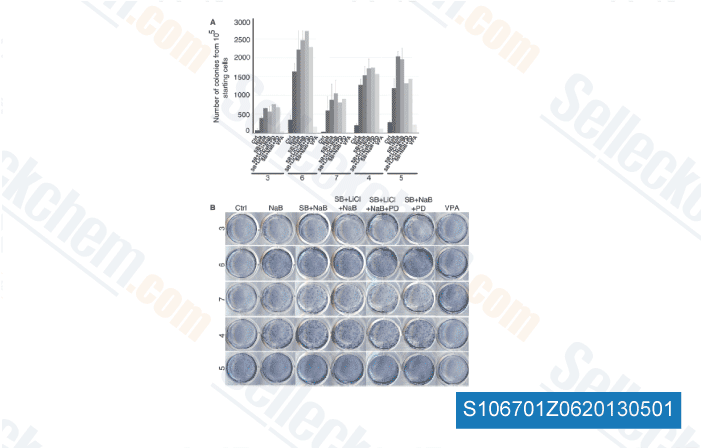The second model we employed was based mostly on infection with H. hepaticus in mice that acquired antibodies directed on the IL ten receptor. In these mice irritation develops in excess of a course of 4 weeks and both innate and adaptive immune responses are involved in this persistent model of colitis. In each versions, dectin 1 deficient mice did not display any significant or selleck chemicals constant differences in excess weight, colon irritation, systemic inflammation and cytokine responses suggesting that the course of inflam mation is the very same for WT and dectin one mice in these versions. This was surprising considering the fact that in vitro experi ments showed that dectin one deficiency had major results on cytokine responses in direction of the mouse faeces. It may be that for the duration of intestinal irritation other PRRs compensate for that lack of dectin one.
quite a few other receptors are acknowledged to recognise fungi such as TLRs. mannose receptor. dectin two and DC Signal and its mouse homologue Sign R1. Due to the fact bacteria will be the dominant bowel inhabitants and only about 1% from the intestinal microbiome includes fungi. it could also selleck be possible that dectin 1 invol vement in intestinal irritation is overwhelmed by responses in direction of the bacterial part. Different PRR are actually shown to play a significant part in human IBD and dectin one is proven to co signal with TLR2 and TLR6 for the manufacturing of many professional inflammatory cytokines. Clearly, although our information propose dectin 1 signalling is redun dant in intestinal inflammation TLR2 and or TLR6 deficiency does impact experimental colitis by way of separate mechanisms indicating that dectin one deficiency does not seem to impact TLR signalling.
This was also indi cated by our observation of typical responses to TLR ligands other that dectin one in  deficient cells. Without a doubt, a mutation identified in human dectin 1 which prospects to par tial dectin 1 deletion continues to be proven not to be involved in IBD. It’s most likely that dectin 1 gets to be additional appropriate when the fungal burden while in the intestine increases, as an illustration resulting from antibiotic treatment or infection. Conclusions Our in vitro data suggest that dectin 1 is capable to induce a cytokine response in direction of mouse faeces, on the other hand dec tin 1 deficiency in mice does not affect the program of inflammation in two models of experimentally induced colitis suggesting that dectin 1 signalling is redundant in experimental colonic inflammation induced by either DSS or H. hepaticus in mice. Background Gene expression is controlled in excess of a broad variety in the transcript degree via complicated interplay in between epige netic modifications, DNA regulatory proteins, and micro RNA molecules. Genome broad screening of expression profiles has provided an expansive point of view on gene regulation in health and illness.
deficient cells. Without a doubt, a mutation identified in human dectin 1 which prospects to par tial dectin 1 deletion continues to be proven not to be involved in IBD. It’s most likely that dectin 1 gets to be additional appropriate when the fungal burden while in the intestine increases, as an illustration resulting from antibiotic treatment or infection. Conclusions Our in vitro data suggest that dectin 1 is capable to induce a cytokine response in direction of mouse faeces, on the other hand dec tin 1 deficiency in mice does not affect the program of inflammation in two models of experimentally induced colitis suggesting that dectin 1 signalling is redundant in experimental colonic inflammation induced by either DSS or H. hepaticus in mice. Background Gene expression is controlled in excess of a broad variety in the transcript degree via complicated interplay in between epige netic modifications, DNA regulatory proteins, and micro RNA molecules. Genome broad screening of expression profiles has provided an expansive point of view on gene regulation in health and illness.
Cd Antigens
The CD4 and CD8 antigens are coupled to a protein-tyrosine kinase (p56lck) that phosphorylates the CD3 complex.
